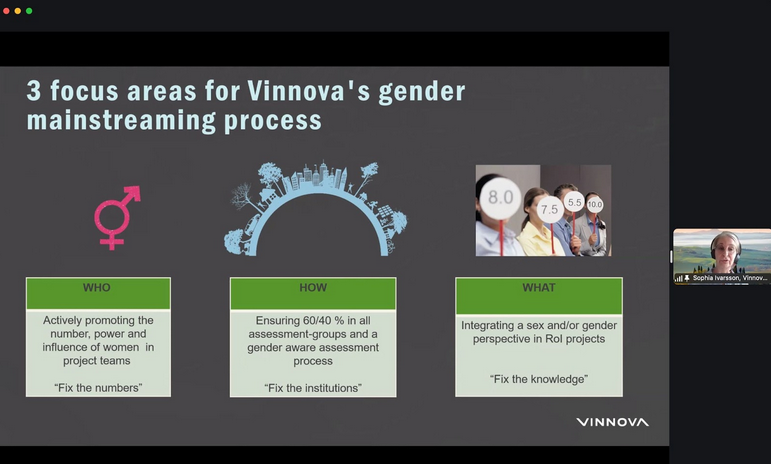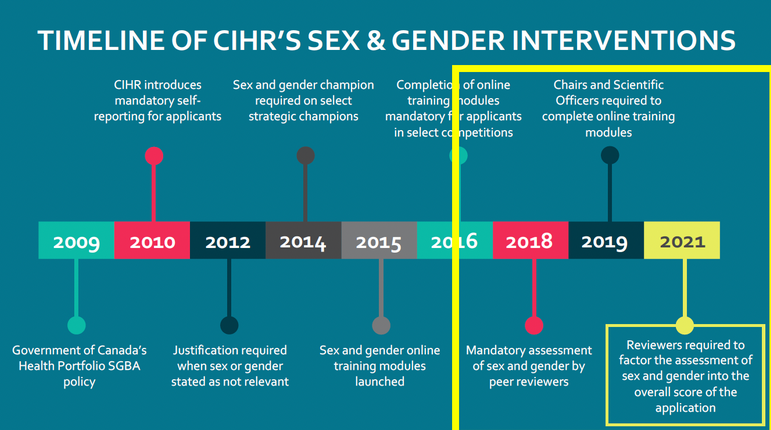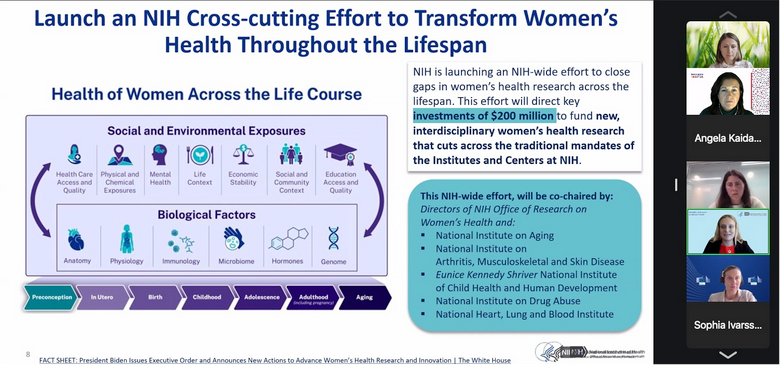Events
EU GENDERACTIONplus hosts stakeholder consultation on inclusive gender analysis in research and innovation
12 November 2024
Back to eventsOn 1 October, the EU GENDERACTIONplus project hosted a stakeholder engagement event to gather global perspectives on the topic of inclusive gender analysis in research and innovation. Representatives from 13 countries, including research funding organisations (RFOs) from both Europe and North America, joined the online event to discuss innovative strategies for promoting inclusive and intersectional gender analysis in research with a view to informing European policy advice.
The event opened with an introduction to the GENDERACTIONplus project by Marcela Linková, Project Coordinator and Head of the Centre for Gender and Science at the Czech Academy of Sciences. This was followed by an overview of EU policy on the integration of the gender dimension in R&I content by Katerina Svickova, Head of Sector for Gender in the European Commission’s Directorate General for Research and Innovation. In particular, she highlighted the ways in which inclusive gender analysis is addressed within Horizon Europe and how this is being monitored and evaluated.
Four research funding organisations then shared their own approaches for embedding gender analysis into research funding processes.Sophia Ivarsson from Vinnova talked about how Sweden’s Innovation Agency is mainstreaming the gender dimension into its research and innovation funding processes, also highlighting how intersectionality is now being taken into account through the promotion of norm-critical innovation.
Angela Kaida, Scientific Director at the Canadian Institutes of Health Research (CIHR), shared insights on how sex, gender and intersectional factors were being integrated into health research funding policies in Canada. In particular, she highlighted the Institute of Gender and Health (IGH)’s Research Priority Plan for 2024-2029, and specific embedded initiatives such as online training for applicants and coaching for peer reviewers.

Emma Roques highlighted gender innovations at the French National Research Agency, including its dedicated action plan for gender equality and the piloting and subsequent introduction in 2022 of the criterion ‘consideration of gender and/or sex in the research project’ for AAPG, their generic call for proposals.

Elizabeth Barr, Associate Director for Interdisciplinary Research at the US National Institutes of Health Office of Research on Women’s Health (ORWH), outlined ways in which they were advancing gender-related research and innovation focusing on the initiatives for promoting women’s health research, funding opportunities and multidisciplinary understanding of complex issues inherent in researching gender, power and health.

Following the presentations, participants discussed the factors influencing successful gender integration in R&I and strategies for promoting intersectional approaches. Participants also shared insights on designing funding mechanisms that incorporate a gender dimension effectively and discussed the role of policy in fostering an inclusive research environment.
The rich exchange of ideas provided valuable insights for GENDERACTIONplus and are now being used to inform the development of policy recommendations for strengthening inclusive gender analysis in R&I policies in view of the EU’s forthcoming 10th Framework Programme for Research and Innovation.
Commenting on the workshop, Lydia González Orta, from La Fundación Española para la Ciencia y la Tecnología (FECYT) in Spain, who leads the GENDERACTIONplus Work Package on Gender dimension in R&I, said, “This workshop has been extremely useful to get a feel for the current challenges and space to move forward among very experienced research funding organisations in Europe and beyond. Working with these kinds of stakeholders enables us to provide policy advice that is both realistic and bold. We believe these two elements are necessary to strengthen an inclusive gender analysis in R&I.”
